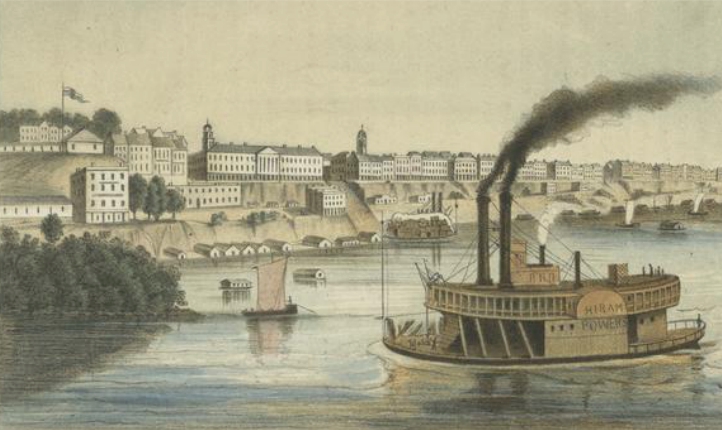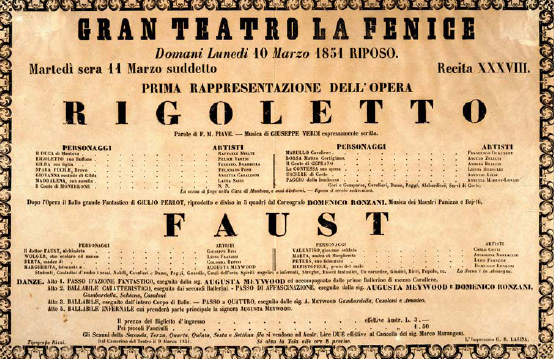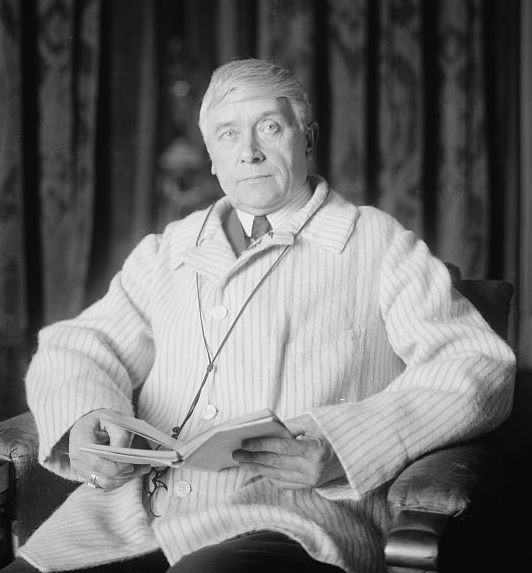|
Richard Vernon (bass)
Richard Vernon (Memphis, Tennessee, May 9, 1953 – Shohola, Pennsylvania, December 2, 2006) was an American operatic bass who is chiefly remembered for his nearly 800 performances with the Metropolitan Opera from 1981 until his death in 2006 at the age of 53. Mainly a performer of comprimario roles, his voice is preserved on several recordings made for Live from the Metropolitan Opera and the Metropolitan Opera radio broadcasts. Life and career Born in Memphis, Tennessee, Vernon earned a Bachelor of Music in vocal performance from the University of Memphis before becoming a member of the Young Artist program at the Houston Grand Opera from 1977 to 1979. He made his professional opera debut with Opera Memphis in 1973 while still an undergraduate student, singing Pimen in ''Boris Godunov''. In 1977 he was a finalist in the Metropolitan Opera National Council Auditions. On February 20, 1981, Vernon made his debut at the Metropolitan Opera as one of the animals in the Met's first ... [...More Info...] [...Related Items...] OR: [Wikipedia] [Google] [Baidu] |
Memphis, Tennessee
Memphis is a city in the U.S. state of Tennessee. It is the seat of Shelby County in the southwest part of the state; it is situated along the Mississippi River. With a population of 633,104 at the 2020 U.S. census, Memphis is the second-most populous city in Tennessee, after Nashville. Memphis is the fifth-most populous city in the Southeast, the nation's 28th-largest overall, as well as the largest city bordering the Mississippi River. The Memphis metropolitan area includes West Tennessee and the greater Mid-South region, which includes portions of neighboring Arkansas, Mississippi and the Missouri Bootheel. One of the more historic and culturally significant cities of the Southern United States, Memphis has a wide variety of landscapes and distinct neighborhoods. The first European explorer to visit the area of present-day Memphis was Spanish conquistador Hernando de Soto in 1541. The high Chickasaw Bluffs protecting the location from the waters of the Mississipp ... [...More Info...] [...Related Items...] OR: [Wikipedia] [Google] [Baidu] |
Doktor Faust
''Doktor Faust'' is an opera by Ferruccio Busoni with a German libretto by the composer, based on the myth of Faust. Busoni worked on the opera, which he intended as his masterpiece, between 1916 and 1924, but it was still incomplete at the time of his death. His pupil Philipp Jarnach finished it. More recently, in 1982, Antony Beaumont completed the opera using sketches by Busoni that were previously thought to have been lost. Nancy Chamness published an analysis of the libretto to ''Doktor Faust'' and a comparison with Goethe's version. Performance history ''Doktor Faust'' was given its world premiere at the Sächsisches Staatstheater, Dresden on 21 May 1925 using the version completed by Philipp Jarnach. The premiere was conducted by Fritz Busch, produced by Alfred Reucker, and designed by Karl Danneman.Beaumont, p. 311. Over the next few years the opera was performed in many of the opera houses of Germany including those in Dortmund, Duisburg, Karlsruhe, Weimar, and Hanover ... [...More Info...] [...Related Items...] OR: [Wikipedia] [Google] [Baidu] |
La Traviata
''La traviata'' (; ''The Fallen Woman'') is an opera in three acts by Giuseppe Verdi set to an Italian libretto by Francesco Maria Piave. It is based on ''La Dame aux camélias'' (1852), a play by Alexandre Dumas ''fils'' adapted from his own 1848 novel. The opera was originally titled ''Violetta'', after the main character. It was first performed on 6 March 1853 at La Fenice opera house in Venice. Piave and Verdi wanted to follow Dumas in giving the opera a contemporary setting, but the authorities at La Fenice insisted that it be set in the past, "c. 1700". It was not until the 1880s that the composer's and librettist's original wishes were carried out and " realistic" productions were staged. ''La traviata'' has become immensely popular and is among the most frequently performed of all operas. Composition history For Verdi, the years 1851 to 1853 were filled with operatic activity. First, he had agreed with the librettist Salvadore Cammarano on a subject for what would ... [...More Info...] [...Related Items...] OR: [Wikipedia] [Google] [Baidu] |
Rigoletto
''Rigoletto'' is an opera in three acts by Giuseppe Verdi. The Italian libretto was written by Francesco Maria Piave based on the 1832 play ''Le roi s'amuse'' by Victor Hugo. Despite serious initial problems with the Austrian censors who had control over northern Italian theatres at the time, the opera had a triumphant premiere at La Fenice in Venice on 11 March 1851. The work, Verdi's sixteenth in the genre, is widely considered to be the first of the operatic masterpieces of Verdi's middle-to-late career. Its tragic story revolves around the licentious Duchy of Mantua, Duke of Mantua, his hunch-backed court jester Rigoletto, and Rigoletto's daughter Gilda. The opera's original title, ''La maledizione'' (The Curse), refers to a curse placed on both the Duke and Rigoletto by a courtier whose daughter the Duke has seduced with Rigoletto's encouragement. The curse comes to fruition when Gilda falls in love with the Duke and sacrifices her life to save him from the assassin hired by ... [...More Info...] [...Related Items...] OR: [Wikipedia] [Google] [Baidu] |
I Vespri Siciliani
''I vespri siciliani'' (; ''The Sicilian Vespers'') is a five-act Italian opera originally written in French for the Paris Opéra by the Italian romantic composer Giuseppe Verdi and translated into Italian shortly after its premiere in June 1855. Under its original title, ''Les vêpres siciliennes'', the libretto was prepared by Eugène Scribe and Charles Duveyrier from their work ''Le duc d'Albe'', which was written in 1838 and offered to Halévy and Donizetti before Verdi agreed to set it to music in 1854.Everist, p. 12 The story is loosely based on a historical event, the Sicilian Vespers of 1282, using material drawn from the medieval Sicilian tract '' Lu rebellamentu di Sichilia''. After its June 1855 Paris premiere, an Italian libretto was quickly prepared using a new title because Verdi realized that it would have been impossible to place the story in Sicily. Based on Scribe's suggestions for changing the location,Budden, pp. 238–240 it became Portugal in 1640 while u ... [...More Info...] [...Related Items...] OR: [Wikipedia] [Google] [Baidu] |
Madama Butterfly
''Madama Butterfly'' (; ''Madame Butterfly'') is an opera in three acts (originally two) by Giacomo Puccini, with an Italian libretto by Luigi Illica and Giuseppe Giacosa. It is based on the short story "Madame Butterfly" (1898) by John Luther Long, which in turn was based on stories told to Long by his sister Jennie Correll and on the semi-autobiographical 1887 French novel '' Madame Chrysanthème'' by Pierre Loti.Chadwick Jenna"The Original Story: John Luther Long and David Belasco" on columbia.edu Long's version was dramatized by David Belasco as the one-act play '' Madame Butterfly: A Tragedy of Japan'', which, after premiering in New York in 1900, moved to London, where Puccini saw it in the summer of that year. The original version of the opera, in two acts, had its premiere on 17 February 1904 at La Scala in Milan. It was poorly received, despite having such notable singers as soprano Rosina Storchio, tenor Giovanni Zenatello and baritone Giuseppe De Luca in lead roles ... [...More Info...] [...Related Items...] OR: [Wikipedia] [Google] [Baidu] |
Don Giovanni
''Don Giovanni'' (; K. 527; Vienna (1788) title: , literally ''The Rake Punished, or Don Giovanni'') is an opera in two acts with music by Wolfgang Amadeus Mozart to an Italian libretto by Lorenzo Da Ponte. Its subject is a centuries-old Spanish legend about a libertine as told by playwright Tirso de Molina in his 1630 play '' El burlador de Sevilla y convidado de piedra''. It is a ''dramma giocoso'' blending comedy, melodrama and supernatural elements (although the composer entered it into his catalogue simply as ''opera buffa''). It was premiered by the Prague Italian opera at the National Theater (of Bohemia), now called the Estates Theatre, on 29 October 1787. ''Don Giovanni'' is regarded as one of the greatest operas of all time and has proved a fruitful subject for commentary in its own right; critic Fiona Maddocks has described it as one of Mozart's "trio of masterpieces with librettos by Da Ponte". Composition and premiere The opera was commissioned after the succes ... [...More Info...] [...Related Items...] OR: [Wikipedia] [Google] [Baidu] |
La Bohème
''La bohème'' (; ) is an opera in four acts,Puccini called the divisions ''quadri'', ''tableaux'' or "images", rather than ''atti'' (acts). composed by Giacomo Puccini between 1893 and 1895 to an Italian libretto by Luigi Illica and Giuseppe Giacosa, based on ''Scènes de la vie de bohème'' (1851) by Henri Murger. The story is set in Paris around 1830 and shows the Bohemian lifestyle (known in French as "") of a poor seamstress and her artist friends. The world premiere of ''La bohème'' was in Turin on 1 February 1896 at the Teatro Regio, conducted by the 28-year-old Arturo Toscanini. Since then, ''La bohème'' has become part of the standard Italian opera repertory and is one of the most frequently performed operas worldwide. In 1946, fifty years after the opera's premiere, Toscanini conducted a commemorative performance of it on radio with the NBC Symphony Orchestra. A recording of the performance was later released by RCA Victor on vinyl record, tape and compact disc. ... [...More Info...] [...Related Items...] OR: [Wikipedia] [Google] [Baidu] |
Eugene Onegin (opera)
''Eugene Onegin'' ( rus, Евгений Онегин, italic=yes, Yevgény Onégin, jɪvˈɡʲenʲɪj ɐˈnʲeɡʲɪn, Ru-Evgeny_Onegin.ogg), Opus number, Op. 24, is an opera ("lyrical scenes") in 3 acts (7 scenes), composed by Pyotr Ilyich Tchaikovsky. The libretto, organised by the composer himself, very closely follows certain passages in Alexander Pushkin's 1825-1832 Eugene Onegin, novel in verse, retaining much of his poetry. Tchaikovsky's friend Konstantin Shilovsky contributed M. Triquet's verses in Act 2, Scene 1, while Tchaikovsky himself arranged the text for Lensky's arioso in Act 1, Scene 1, and almost all of Prince Gremin's aria in Act 3, Scene 1. ''Eugene Onegin'' is a well-known example of lyric opera, to which Tchaikovsky added music of a dramatic nature. The story concerns a selfish hero who lives to regret his blasé rejection of a young woman's love and his careless incitement of a fatal duel with his best friend. The opera was first performed in Moscow in 1879. ... [...More Info...] [...Related Items...] OR: [Wikipedia] [Google] [Baidu] |
Macbeth (opera)
''Macbeth'' () is an opera in four acts by Giuseppe Verdi, with an Italian libretto by Francesco Maria Piave and additions by Andrea Maffei, based on William Shakespeare's play of the same name. Written for the Teatro della Pergola in Florence, it was Verdi's tenth opera and premiered on 14 March 1847. ''Macbeth'' was the first Shakespeare play that Verdi adapted for the operatic stage. Almost twenty years later, ''Macbeth'' was revised and expanded in a French version and given in Paris on 19 April 1865. After the success of ''Attila'' in 1846, by which time the composer had become well established, ''Macbeth'' came before the great successes of 1851 to 1853 (''Rigoletto'', ''Il trovatore'' and '' La traviata'') which propelled him into universal fame. As sources, Shakespeare's plays provided Verdi with lifelong inspiration: some, such as an adaption of ''King Lear'' (as ''Re Lear'') were never realized, but he wrote his two final operas using ''Othello'' as the basis for ' ... [...More Info...] [...Related Items...] OR: [Wikipedia] [Google] [Baidu] |
Pelléas Et Mélisande (opera)
''Pelléas et Mélisande'' (''Pelléas and Mélisande'') is an opera in five acts with music by Claude Debussy. The French libretto was adapted from Maurice Maeterlinck's symbolist play of the same name. It premiered at the Salle Favart in Paris by the Opéra-Comique on 30 April 1902; Jean Périer was Pelléas and Mary Garden was Mélisande, conducted by André Messager, who was instrumental in getting the Opéra-Comique to stage the work. The only opera Debussy ever completed, it is considered a landmark in 20th-century music. The plot concerns a love triangle. Prince Golaud finds Mélisande, a mysterious young woman, lost in a forest. He marries her and brings her back to the castle of his grandfather, King Arkel of Allemonde. Here Mélisande becomes increasingly attached to Golaud's younger half-brother Pelléas, arousing Golaud's jealousy. Golaud goes to excessive lengths to find out the truth about Pelléas and Mélisande's relationship, even forcing his own child, Yniold ... [...More Info...] [...Related Items...] OR: [Wikipedia] [Google] [Baidu] |









